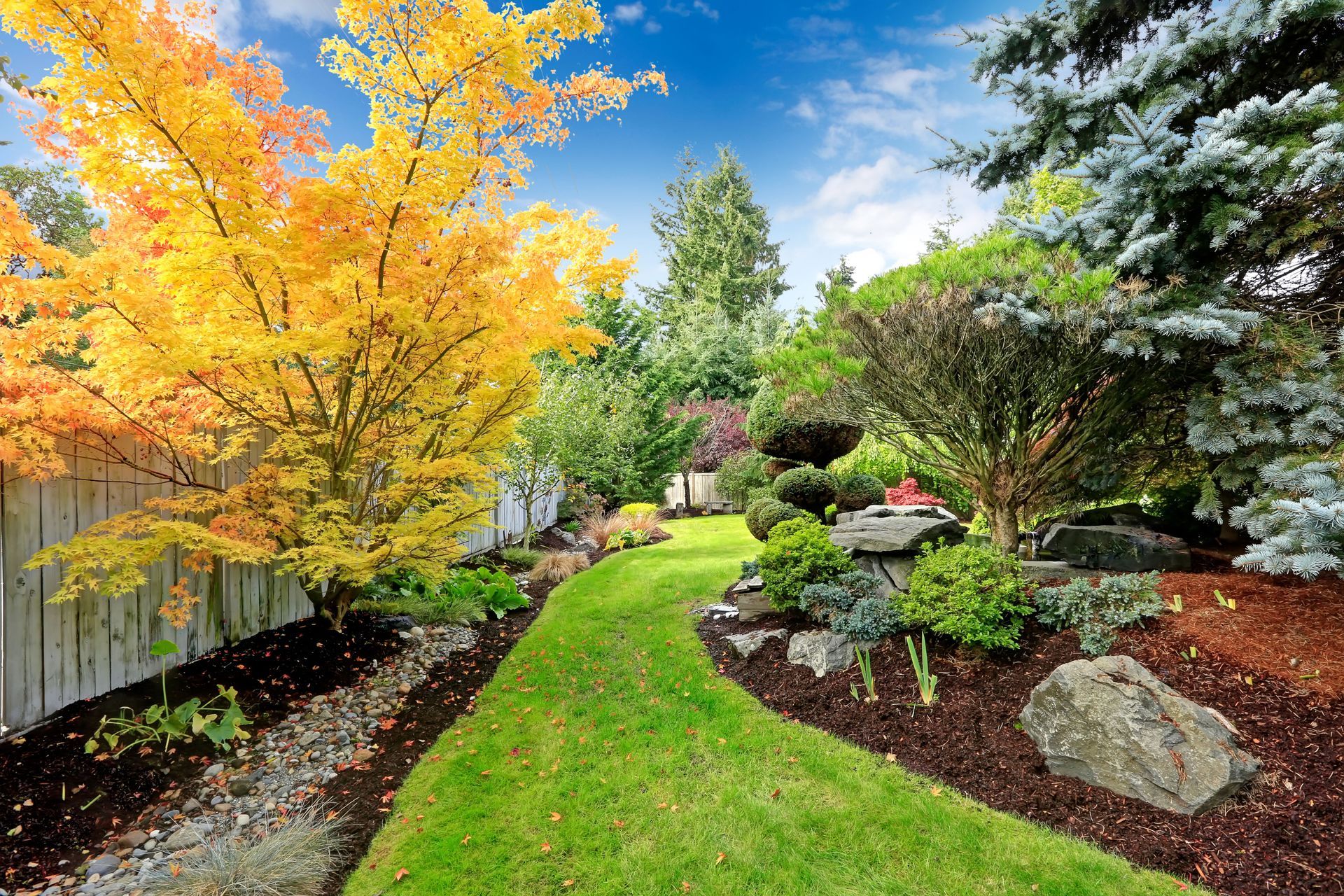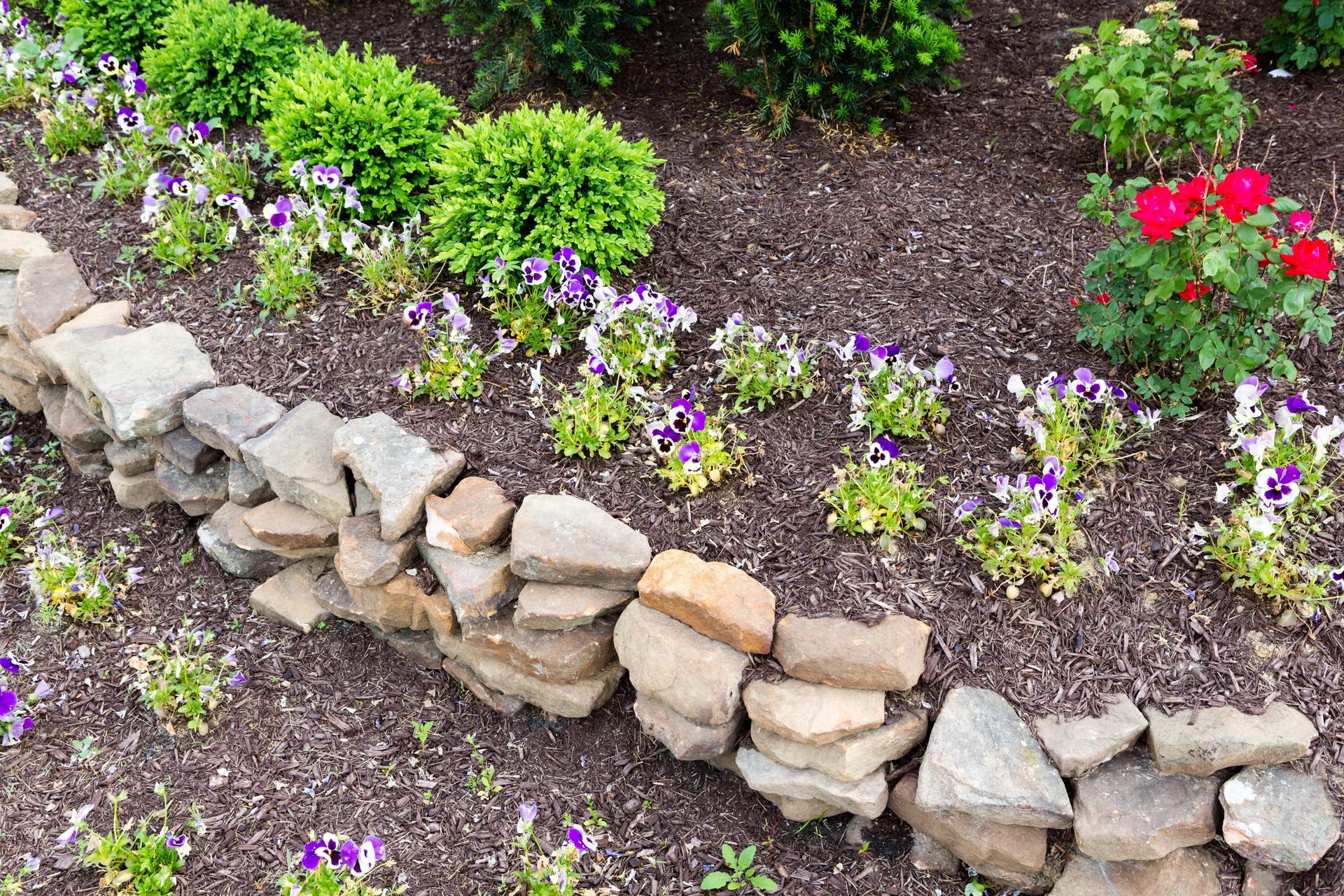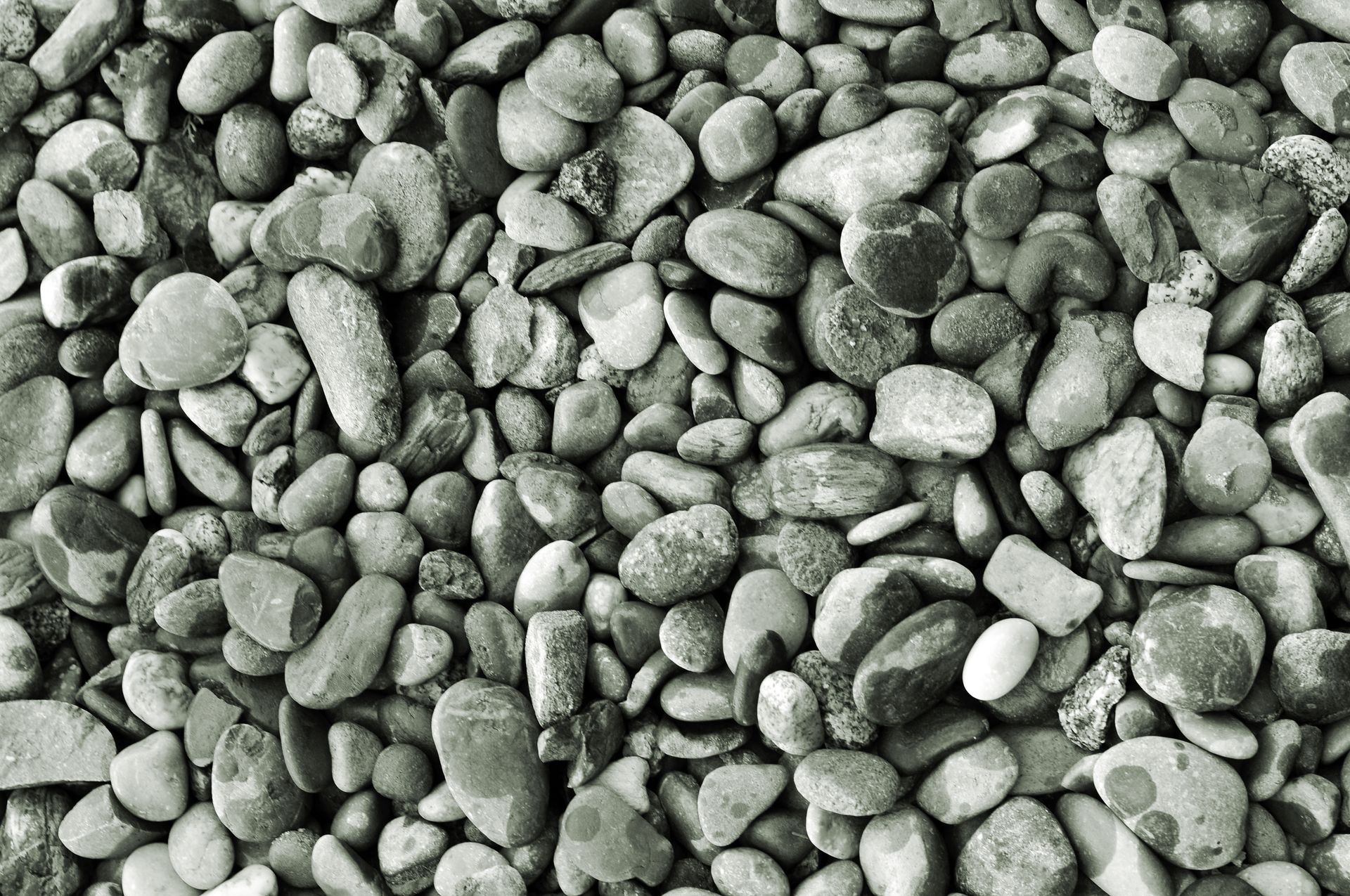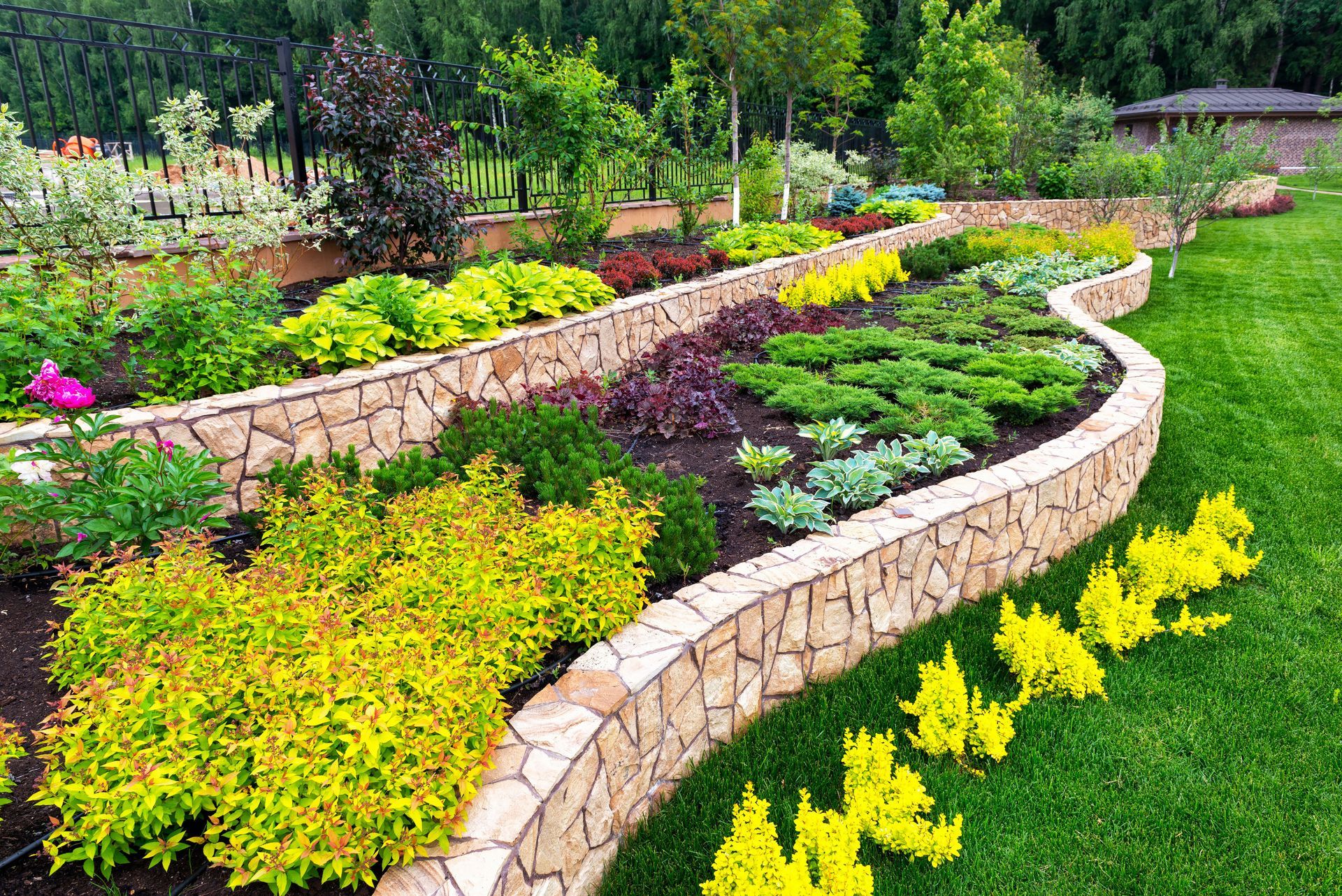5 Benefits of Adding Landscape Rocks to Garden Beds
The addition of landscape rocks to garden beds enhances aesthetics, durability, and functionality. Beyond their visual appeal, rocks can help with soil erosion control, moisture retention, and low-maintenance landscaping, making them a practical choice for homeowners. According to LawnStarter, a standard rule of thumb is to spend about 10% of your home's value on total front yard and backyard landscaping, which highlights the importance of thoughtful investment in your outdoor space. By incorporating landscape rocks strategically, homeowners can achieve a polished, long-lasting garden design that not only elevates curb appeal but also provides environmental and cost-saving benefits. This comprehensive guide explores how integrating rocks into your garden landscape is both a smart and stylish decision, enriching the overall garden experience.
1. Aesthetic Appeal
Using landscape rocks introduces colors and textures, creating visual interest and contrasting with plants. The natural hues of rocks can complement the vibrant colors of flowers and greenery, adding depth and richness to garden visuals. In addition, the inclusion of various rock sizes and shapes can enhance the garden's dynamic appearance, offering a visually stimulating environment. Incorporating rocks provides the advantage of low-maintenance beauty, maintaining their vividness without the need for frequent replacements or touch-ups. For homeowners considering long-term investments in garden aesthetics, rocks present an enduring solution.
Landscape rocks offer versatile design options, from modern to rustic styles. Whether aiming for a minimalist look with sleek, smooth stones or a rugged scheme with jagged rocks, these materials can adapt to any style preference. Beyond different shapes and sizes, rocks also come in a variety of colors, ensuring compatibility with any garden theme. This versatility means that as trends change, your garden can easily evolve without significant overhauls. Hence, landscape rocks support both creativity and flexibility, allowing for personal expression while maintaining a cohesive garden design.
Strategically placed rocks can draw attention to specific garden features or plants. By using rocks as borders or backdrops, gardeners can highlight certain areas and create focal points, naturally directing the eye. These focal points not only enhance the visual appeal but also imbue the garden with depth and intrigue, encouraging exploration and appreciation. Furthermore, rocks add a form of sensory engagement, appealing not only to the eyes but also offering tactile exploration opportunities. This thoughtful arrangement of rocks as focal elements transforms a simple garden into an immersive outdoor experience.
2. Soil Health
Rocks mitigate soil erosion, aiding in preserving the integrity of garden beds. The placement of rocks can act as a barrier, slowing down water runoff and reducing the displacement of soil particles. This stabilization of soil is particularly crucial on slopes or areas susceptible to erosion, ensuring that garden beds maintain their structure and composition over time. Moreover, rocks provide a protective layer that shields soil from weather extremes, preserving soil health through various climatic changes. In doing so, landscape rocks not only bolster the aesthetics but also fortify the garden's foundational aspects.
Rocks help retain moisture in soil, reducing the need for frequent watering. Acting as a barrier, rocks limit the evaporation of water, keeping the soil beneath damp and plants hydrated longer. This moisture control is beneficial in areas with water restrictions or during dry seasons, ensuring plants receive consistent nourishment. Additionally, reduced watering translates to economic benefits, saving homeowners on water bills. With a thoughtful arrangement of rocks, gardeners can support a sustainable plant ecosystem that balances beauty with environmental responsibility.
Landscape rocks create a barrier that suppresses weed growth. The continuous coverage that rocks provide prevents sunlight from reaching weed seeds, inhibiting their ability to germinate and spread. This natural form of weed control minimizes the need for chemical herbicides, promoting a healthier garden ecosystem. Additionally, with fewer weeds, gardens appear neater and more well-maintained, enhancing overall aesthetics. Homeowners can appreciate the reduced labor and time associated with weeding, allowing for more enjoyment of their garden spaces.
3. Low Maintenance Gardening
Landscape rocks offer a long-lasting, durable ground cover that requires minimal upkeep. Unlike organic materials that decompose, rocks maintain their form and effectiveness over years, avoiding frequent replacement. Their durability is particularly valuable in areas with high traffic or environmental exposure, maintaining structure and aesthetics with little intervention. The low-maintenance nature of rocks aligns with modern gardening trends that value sustainability and efficiency. By investing in rocks, gardeners enjoy both functional resilience and reduced ongoing maintenance effort.
Rocks retain soil moisture, decreasing the frequency of watering required. With rocks in place, evaporation is minimized, allowing plants to access moisture over extended periods. This water efficiency not only supports plant health but also represents a resource-saving strategy in garden management. Reduced watering demands are especially appealing in regions facing water scarcity or under conservation mandates. For homeowners, this leads to both sustainable gardening practices and economic savings on water bills.
Rocks can deter pests and insects from accessing plant roots. The barrier created by rocks can obstruct pests, reducing the likelihood of infestations that harm plants. This natural deterrent decreases dependency on chemical pesticides, fostering a healthier and more environmentally-friendly garden space. Additionally, preventing pest access to roots ensures that plants can thrive without stress or damage, maintaining their aesthetic and health over time. A garden incorporating rocks, therefore, benefits from both reduced pest activity and an enhanced growing environment.
4. Environmental Friendliness
Rocks are a natural material with minimal environmental impact. Their use avoids synthetic or chemically processed options, aligning with eco-friendly principles. Furthermore, rocks can be sourced locally, reducing transportation emissions and supporting local economies. The durability and longevity of rocks also mean fewer resources are needed over time, reducing their ecological footprint. By choosing rocks, gardeners contribute to sustainable practices that harmonize with nature.
With rocks, fewer chemicals like herbicides and pesticides are needed. The barrier that rocks provide against weeds and pests naturally minimizes the necessity for chemical interventions. This reduction in chemical use promotes healthier soil ecosystems and supports biodiversity, fostering a vibrant garden ambiance. Additionally, reduced chemical dependency translates to economic savings, as fewer resources are allocated for treatment and control. Ultimately, rock gardens uphold the integrity of natural processes, enhancing garden health and sustainability.
5. Structural Benefits
Rocks can reinforce pathways and garden boundaries, creating clear divisions. Their sturdy nature ensures that pathways are both functional and visually appealing, supporting leisurely strolls or more practical garden tasks. With rocks, pathways maintain their integrity over time, reducing maintenance and repair needs. Additionally, defining boundaries with rocks prevents the mixing of different landscaping elements, streamlining design coherence. For homeowners, clearly outlined pathways enhance both the functionality and aesthetic appeal of outdoor spaces.
Rocks support the strength and functionality of retaining walls. As structural components, they provide necessary stability and prevent soil displacement, especially in sloped or elevated gardens. By integrating rocks into retaining walls, gardeners benefit from a durable construction that withstands time and environmental stress. Functioning as both design and practical elements, these walls showcase the elegance and effectiveness of rock landscaping. This multipurpose usage amplifies the value landscape rocks bring to garden design and sustainability.
Landscaping with rocks offers significant benefits including aesthetic enhancement, improved soil health, and reduced maintenance efforts. Their environmental friendliness and cost-effectiveness combine to make them a valuable addition to any garden. By incorporating rocks, gardeners enjoy not only immediate visual appeal but also long-term advantages in sustainability and economic performance. As versatile elements, rocks adapt to varying garden styles and functional needs, ensuring they remain a central feature in comprehensive garden design. Through exploring these extensive benefits, homeowners are empowered to make lasting enhancements to their outdoor environments. For more information contact Herman's Landscape Supplies today.





Share On: